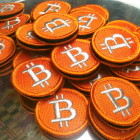
House Committee Approves Stronger Penalties for Sex Offenses Against Minors
|
WASHINGTON - Despite pointed criticism from some lawmakers, the House Judiciary Committee on Tuesday approved a bipartisan bill that pushes for harsher penalties for people convicted of sex offenses against minors under 12 and authorizes millions of dollars to fight Internet crimes against children. Sponsored by committee Chairman Lamar Smith (R-Texas), the Child Protection Act of 2012 (H.R. 6063) calls for $60 million a year until 2018 for task forces working to investigate Internet crimes against children. It also reinforces the need for the U.S. Justice Department to appoint a senior official as a national coordinator for child exploitation prevention and interdiction, a position first created by the PROTECT Our Children Act by Congress in 2008. In addition, the bill widens protections for child witnesses who may be subject to intimidation or harassment, doubles to $4 million the cap on funds available to train Internet Crimes Against Children task forces, and gives U.S. Marshals the power to issue administrative subpoenas to investigate unregistered sex offenders. Smith introduced similar legislation last year but it did not reach the full House floor for a vote.




